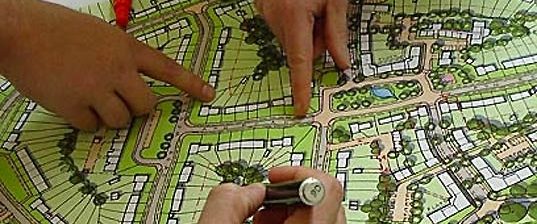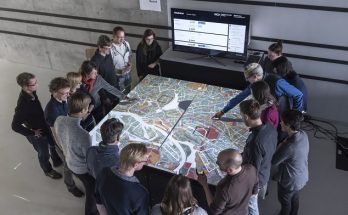Introduction
In an increasingly interconnected world, regional planning and inter-municipal cooperation have emerged as crucial components for sustainable development. These strategies facilitate coordinated efforts among neighboring municipalities, allowing them to address common challenges, optimize resource use, and promote balanced growth. By transcending individual municipal boundaries, regional planning and inter-municipal cooperation enable a holistic approach to urban and rural development, fostering economic vitality, environmental sustainability, and social equity.

The Importance of Regional Planning
- Comprehensive Development: Regional planning ensures that development is balanced across a larger geographical area, preventing the overconcentration of resources and opportunities in certain areas while others remain underdeveloped. This approach promotes equitable growth and reduces regional disparities.
- Efficient Resource Management: By considering the needs and capacities of an entire region, planners can optimize the use of natural resources, infrastructure, and public services. This holistic view helps in addressing issues like water management, waste disposal, and transportation more effectively than isolated municipal efforts.
- Environmental Sustainability: Regional planning facilitates the preservation of natural landscapes and ecosystems by integrating environmental considerations into development strategies. It promotes sustainable land use, conservation of green spaces, and the reduction of urban sprawl, contributing to the overall health of the region.
- Economic Synergy: Coordinated regional development can stimulate economic growth by leveraging the strengths and resources of different municipalities. It encourages the establishment of regional economic hubs, fosters innovation, and attracts investments, creating a more robust and resilient economy.
The Role of Inter-Municipal Cooperation
- Shared Services: Inter-municipal cooperation allows municipalities to pool resources and provide shared services, such as emergency response, waste management, and public transportation. This collaboration enhances service efficiency and reduces costs, benefiting all participating communities.
- Joint Infrastructure Projects: Municipalities can collaborate on large-scale infrastructure projects, such as highways, public transit systems, and water treatment facilities. Joint efforts ensure that these projects are planned and implemented efficiently, serving the needs of the entire region rather than just individual municipalities.
- Policy Coordination: By working together, municipalities can develop and implement policies that address regional issues such as housing, land use, and economic development. Coordinated policies ensure consistency and coherence, preventing conflicts and promoting harmonious development.
- Crisis Management: Inter-municipal cooperation is vital during emergencies and natural disasters. Collaborative planning and response strategies enable municipalities to pool resources, share information, and coordinate actions, enhancing the region’s resilience and ability to recover from crises.
Challenges to Regional Planning and Inter-Municipal Cooperation
- Political and Administrative Barriers: Differences in political priorities, administrative structures, and governance models can hinder cooperation among municipalities. Overcoming these barriers requires strong leadership, effective communication, and a commitment to collaborative decision-making.
- Resource Allocation Conflicts: Disputes over resource allocation and funding can arise when municipalities have competing interests. Establishing fair and transparent mechanisms for resource distribution is essential to maintaining trust and cooperation.
- Legal and Regulatory Constraints: Variations in legal frameworks and regulatory requirements across municipalities can complicate regional planning efforts. Harmonizing regulations and establishing regional governance structures can mitigate these challenges.
- Public Perception and Participation: Gaining public support for regional initiatives can be challenging, particularly if residents perceive that their local needs are being overlooked. Engaging communities in the planning process and demonstrating the benefits of cooperation are crucial for building public trust and participation.
Strategies for Effective Regional Planning and Inter-Municipal Cooperation
- Establishing Regional Planning Bodies: Creating dedicated regional planning authorities or councils can provide a formal structure for coordinating efforts among municipalities. These bodies can facilitate dialogue, develop regional plans, and oversee the implementation of joint projects.
- Developing Collaborative Frameworks: Establishing clear frameworks for inter-municipal cooperation, including agreements on shared goals, decision-making processes, and resource allocation, can enhance collaboration and ensure accountability.
- Promoting Public Engagement: Involving residents in regional planning initiatives through public consultations, workshops, and participatory decision-making processes can build support and ensure that regional plans reflect the needs and aspirations of the community.
- Leveraging Technology and Data: Utilizing advanced technologies and data analytics can enhance regional planning and cooperation. Geographic Information Systems (GIS), for example, can provide valuable insights into regional trends, enabling more informed decision-making.
- Securing Funding and Resources: Accessing funding from higher levels of government, international organizations, and private sector partnerships can support regional planning and inter-municipal cooperation initiatives. Developing innovative financing mechanisms, such as regional development funds, can also provide sustainable funding sources.
Conclusion
Regional planning and inter-municipal cooperation are essential for addressing the complex challenges of modern urban and rural development. By fostering collaboration among municipalities, these approaches promote balanced growth, efficient resource management, environmental sustainability, and economic vitality. Overcoming the challenges to cooperation requires strong leadership, effective communication, and a commitment to shared goals. With the right strategies and frameworks in place, regional planning and inter-municipal cooperation can create thriving, resilient communities that benefit all residents.



